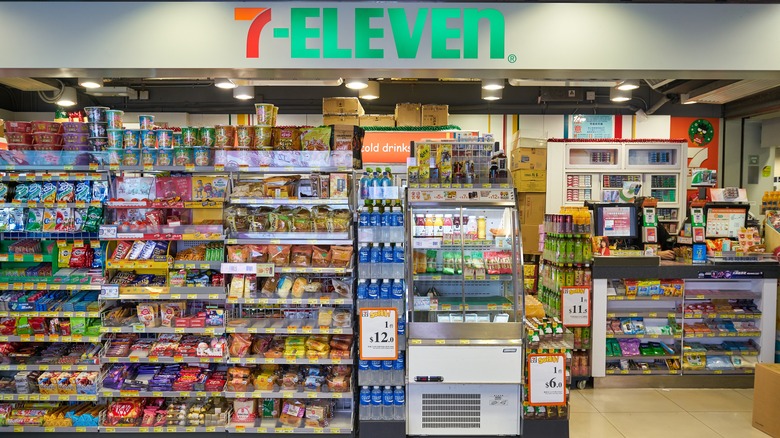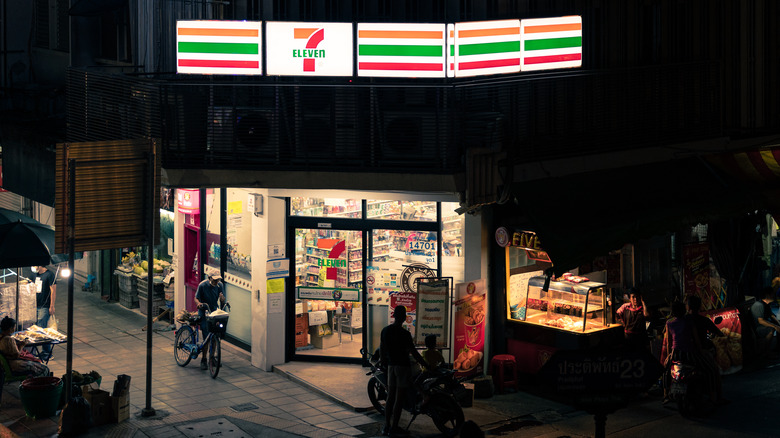7-Eleven Was Once The Go-To Spot For Neighborhood Nightlife In Indonesia
For many in the United States, 7-Eleven is a ubiquitous one-stop shop for late-night snacks or six-packs. Neon-colored Slurpees perpetually churn in their machines. Harsh, fluorescent lighting illuminates the days-old grease that glistens on the Monterey Jack and chicken taquitos, eternally rotating beneath a heat lamp. Though there are certainly foods you should avoid at 7-Eleven, there must be a reason why this company is the world's biggest convenience store chain, boasting over 12,000 stores in North America alone, according to CNBC. Across the globe, 7-Eleven has more locations than any other franchise, with a grand total of 78,413 locations, compared to McDonald's 40,031 (per Franchise Times).
Most Americans see 7-Eleven as a quick, in-and-out experience when grabbing ice for a party or sustenance on a road trip, but elsewhere, the chain of convenience stores is more of a novelty. Walk into a Japanese 7-Eleven, and you'll find aisles generously stocked with ramen, bento boxes containing balanced meals, and a variety of sake, reports the Los Angeles Times. In Pattaya, Thailand, you'll find perhaps the biggest 7-Eleven on the planet, designed to feel like a cruise ship with an in-house coffee shop; shelves containing not only food, but also apparel and household items; and an ocean theme throughout, per The Travel. And until a few years ago, if you traveled to Indonesia, you would've stumbled across another unexpected and fascinating iteration of the humble 7-Eleven.
7-Eleven's eight-year stint in Indonesia
In 2009, 7-Eleven opened its first franchise in Indonesia, according to The New York Times. Over the next eight years, it became a popular hangout for young people to socialize into the wee hours of the morning, lingering to dine on "pillow bread" sandwiches filled with cheese or chocolate while checking out "lots of good eye candy" at the provided seating areas. More than two-thirds of 7-Eleven Indonesia's customers were 30 or younger, and they used the stores as a place to gossip, enjoy free internet and air-conditioning, and even check out local bands.
At its peak, 7-Eleven Indonesia had 190 stores across the country, hitting sales of around $78 million. Seems like a promising future, right? Stores were busy with young, hip locals in and around the capital of Jakarta, but according to Customer Experience Asia, many of them "would just buy one drink and sit for hours." The businesses also had to contend with rising competitors, Indomaret and Alfamart, both of which far outnumbered 7-Eleven stores in the country. Indonesian 7-Elevens sounded like a dream come true, but that dream was short-lived: The chain closed its doors in 2017. These days, youths looking for affordable late-night eats may be returning to warung, Indonesia's food stalls, or night markets like Pecenongan, per The Dragon Trip.

